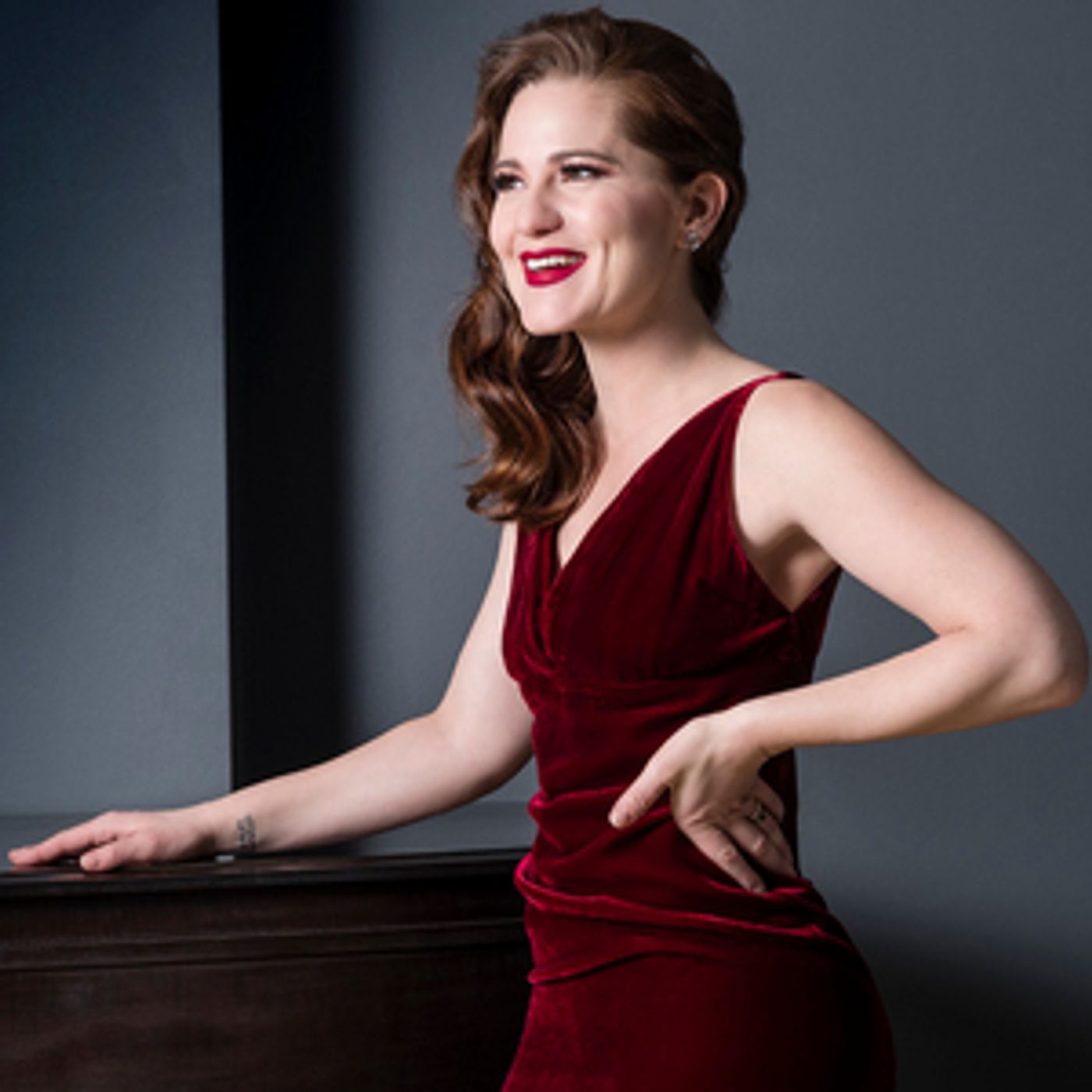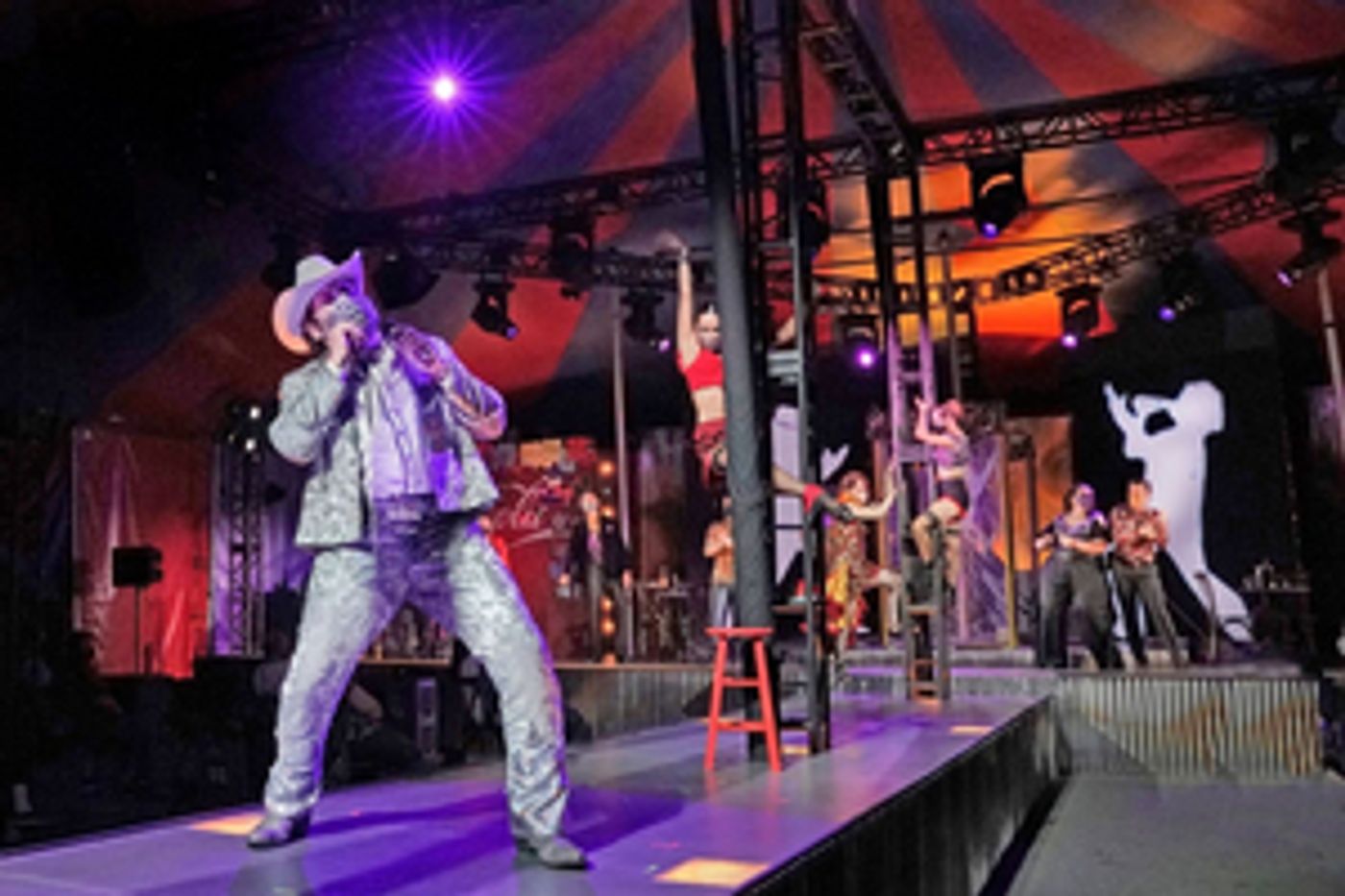Review: This CARMEN's Ready for Her Close-up on Film in Atlanta
Forget Seville. Carmen’s now a cabaret singer in a Texas dive-bar.

For one of the most popular operas in the traditional repertoire--ABC in the opera world means AIDA, BOHEME and CARMEN--the work by Bizet has had to have more lives than the proverbial cat to get there.
The version, now called THE THREEPENNY CARMEN, by the Atlanta Opera's General and Artistic Director and frequent stage director Tomer Zvulun--is now available as a film with subtitles, from Zvulun and filmmaker Felipe Barral. It is current proof that opera doesn't have to stand still like a statue in an art museum to show that it is alive and well and, this time around, living in Texas. Bright colors and sassy costumes abound. (Sets designed by Julia Noulin-Mérat and costumes by Joanna Schmink; lighting by Marcella Barbeau with projections by Erin Teachman.)
This brand-new adaptation of the 1875 Meilhac-Halevy libretto, by Zvulun, conductor Jorge Parodi and actor Tom Key, captures the essence of the original, while setting it in a dive bar, changing the occupations of the main characters and adding a first-rate Flamenco dancer (Sonia Olla). The result is a festival for the eyes and ears, even as the opera is stripped down to its essentials of sex, lies and, now, videotape. (It was filmed recently in the company's Big Tent outside its regular home at the Cobb Energy Performing Arts Center.)

Purists might groan at some of the changes, but they've probably seen the various "real" versions of the opera (there are plenty of iterations under that heading) enough times to make room for the creativity used to cut this one down to 90 minutes. It's fun to watch and listen to, even though the opera itself is no laugh riot (well, maybe, Escamillo, until he dies...), with death and dread central to the story.
Here, it's been updated to life in the time of Covid--lots of masks and plastic dividers here, with pods for the audience--with Don Jose's mother in a Covid ward and talk of vaccination. There's a narrator (a fine Tom Key as the famed Lilas Pastia, owner of the bar) to fill in some of the blanks in the truncated libretto. The bar is the hunting ground for Carmen and her cohorts and the site of the "Toreador Song," though this time around it's about a bullfighter not the toreador himself, with Escamillo, a pelvis grinding, testosterone-happy stud, longing for the rodeo.

The performers were first-rate, even when singing through masks. Notably, mezzo Megan Marino (petite in size but vocally lush) was a sensational Carmen (now a cabaret singer) and soprano Jasmine Habersham a wonderful, bright-voiced Micaela. (Dancer Olla, a star in the Flamenco world, gave extra excitement to the proceedings.) The women were nicely paired by tenor Richard Trey Smagur as Don Jose (now, a cop) and baritone Michael Mayes as a hip-swiveling, Elvis-like Escamillo, fine additions to the love triangle (quadrangle?) at the center of the piece.
The music, of course, is for most the opera's calling card. (Even Maris Callas couldn't resist it and recorded it though she'd never done it on stage, her only opera in French.) The "Habanera," the "Toreador Song" and "La fleur que tu m'a jetee" have had long happy lives of their own outside the opera in production.
But the story, even when it's been sent back to the drawing board, as it has been done in Atlanta, has kept it high on opera-lovers' list of favorites, no matter what form it takes. This is true even when the score is cut to shreds, as in Peter Brook's LA TRAGEDIE DE CARMEN, which the New York Times' Donal Henahan called "a bird that makes noises like an opera but looks like a play and may be neither, so much as a celebration of the director's ingenuity...." THREEPENNY CARMEN, too, celebrates ingenuity, of the director and his team of creatives, as well as the cast.
This is a CARMEN that concentrates on the commonplace rather than the aristocratic even more than the original--which was a sticking point for many critics when it first appeared, though audiences had no trouble making the transition--and is stripped down to a more intimate story than usually seen.
It is, in fact, a CARMEN for our times. Vive la difference!
For more information and a link to the performance, see the Atlanta Opera website.
Reader Reviews

Videos

